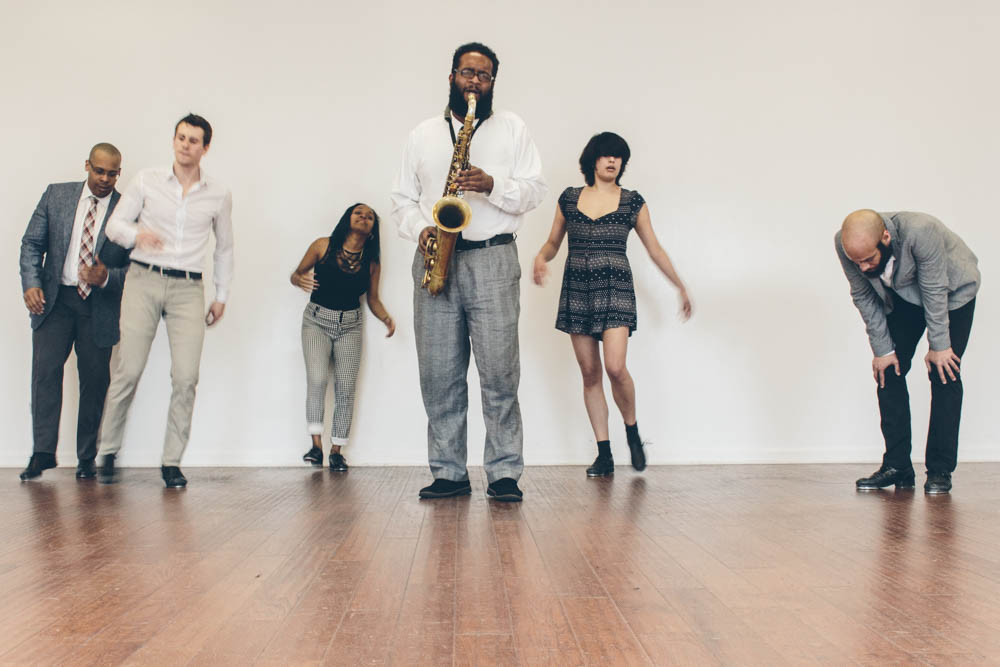CHICAGO — Last weekend’s JUBA! puts a cap on the 26th annual Rhythm World: Chicago Human Rhythm Project (CHRP)’s month-long tap festival including classes, workshops and performances. For more than half of its 26 years, the Museum of Contemporary Art (MCA) has been the site of this culminating event, bringing some of the best and brightest stars of tap dance to the MCA’s perfect-sized live arts venue. Onstage at the top of the performance, Interim Director of Performance Programs Yolanda Cesta Cursach (who currently fills the role held by Peter Taub for two decades) appeared with CHRP Co-founder and Director Lane Alexander, both gushing with the importance of JUBA! to their respective organizations. Always fun but often chaotic, this year’s cohesive format, smooth transitions and little to no internal commentary made for a remarkably pleasant evening of phenomenal foot drumming. Alexander, admitting his gift of gab at JUBA!, said “these artists’ work speaks for itself.” And he was right.

The first half of the performance consisted of four solos back to back from Ayodele Casel, Nico Rubio, Maud Arnold and Cartier Williams, the first three accompanied by a fantastic jazz trio. Considered alone, each solo has merit: Cartier Williams’ cool persona, Maud Arnold’s sweet and sassy lightheartedness, Nico Rubio’s stretched out slides and Ayodele Casel’s deceivingly casual rendition of Miles Davis’ Kind of Blue. Indeed, the whole is better than the sum of its parts, as we see the full range of what becomes possible when a single tapper is placed onstage. It pulls on the origins of American tap dance, as an bodily extension of jazz and blues music fraught with individuality; in moments I was transported to a seedy, intimate jazz club. My fellow audience and I needed only a cigarette and a dry martini to make the evening just right.
Honestly, the convention of the evening’s first half surprised me. JUBA! usually takes full advantage of the fringes in tap, presenting extreme possibilities and cutting edge work. Surprised me, yes, but did not at all disappoint. There’s something so viscerally satisfying about plain ole tap dancing done really well. The second part of the evening echoed the first in that respect, but pushed the limitations of the form in really interesting ways. Jumaane Taylor’s Supreme Love, a long form work celebrating the iconic music of John Coltrane, takes tap into the spiritual realm by the dancers of M.A.D.D. Rhythms. Literal references to praying, the dancers’ exaltation of a tree stump onstage, and frenetic, inspired, at times totally chaotic tap dancing contribute to the religious fervor, but I’m getting ahead of myself.

Coltrane’s A Love Supreme recently celebrated its 50th anniversary, and Jumaane Taylor isn’t the first to use it as inspiration – Jawole Willa Jo Zollar’s 2014 Walking with ‘Trane passed through the Dance Center of Columbia College last spring with an Afro-contemporary interpretation of the score. The music is a blending of musical heritages from around the world, with so much room for play that you’ll never hear it the same way twice. Expert saxophonist Greg Ward (whose list of collaborations with dancers is growing) tackles the score with ease, the dance mirroring the rhythms, subleties, and ever-rising crescendos of the hour-plus album. The beginning is slow, all fuss and muss over that tree stump (perhaps meant to symbolize the Tree of Life) until the dancers snap into their bodies with simple, hypnotizing, unison paradiddles and from then on, you’re hooked in. Unfortunately, the dressings of the piece (the tree, the praying, indistinguishable recorded text, and a misplaced costume change) do little to serve its purpose: celebrating Coltrane’s revolutionary score. The dancers’ feet, their energy, and the excellent musicians are all that is needed to make this work capture our attention and our hearts.
